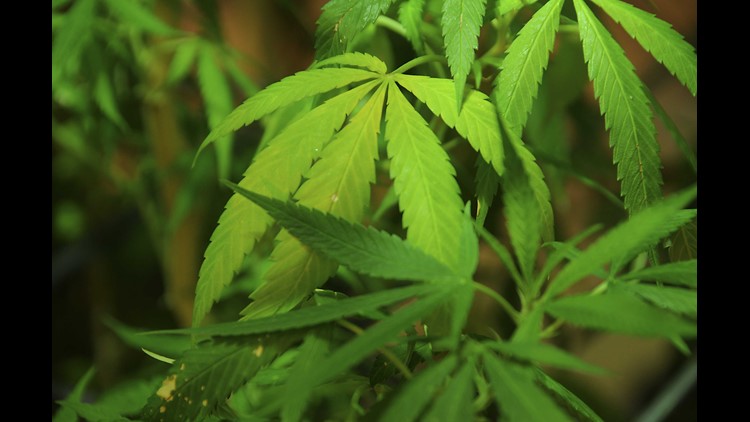LITTLE ROCK (KFSM) — Arkansans for Compassionate Care, the group that collected signatures to get the Medical Cannabis Act, also known as Issue 7, on the ballot in November filed a petition for a rehearing before the Arkansas Supreme Court after the court disqualified the measure from the ballot last week.
The organization argues the Supreme Court’s decision violates both the Arkansas and U.S. Constitutions. The court disqualified the measure after deciding some of the signatures collected on Medical Cannabis Act petitions should be invalidated because the canvassers who collected them did not meet state guidelines.
In their petition, Arkansans for Compassionate Care argues the Supreme Court’s strict interpretation of a law the legislature passed in 2013 that requires measure sponsors to file certain information regarding paid canvassers infringes on the rights of the people to initiate laws unless they are well-financed to meet the unwise and unreasonable requirements of the law. The group states there are flaws in the law because the Supreme Court, Secretary of State, the intervenor and the special master appointed to the case all interpreted the law differently.
Arkansans for Compassionate care also pointed to an opinion filed by Justice Courtney Hudson Goodson in the court’s decision to disqualify Issue 7. Goodson writes that while she concurs with the majority, the law regarding paid canvassers “imposes arduous and burdensome requirements to the procedures for circulating and filing petitions for initiatives and referenda” which “imposes a chilling effect on the rights of our citizens to initiate laws.” Goodson also notes that it is the court’s responsibility to uphold the laws passed by the legislature, so the Justices’ decision was based on “pure technicalities” imposed by the law and the result is that “the wishes of the citizens who signed the petition in good faith are being discarded, and the right of the people to pass judgment on the proposal in the voting booth has been lost.”
In his dissenting opinion, Chief Justice Howard W. Brill writes that he would have denied the petition to disqualify Issue 7 from the ballot because the petitioner did not prove which, if any, canvassers were paid by Arkansans for Compassionate Care. Brill agreed with the special master appointed by the Supreme Court, who found that most of the signatures challenged by the petitioner should be counted, which would have kept Issue 7 on the ballot.
In their rehearing petition, Issue 7 backers argue the paid canvasser law favors the rich and well-funded, specifically the sponsors of the Medical Marijuana Amendment, also known as Issue 6, which is still on the ballot, over grassroots organizations because of the money required to meet the law’s requirements. Contributions reports filed by Arkansans United for Medical Marijuana, the backers of Issue 6, with the Arkansas Ethics Commission show the group has raised more than $885,000 compared to the nearly $163,000 raised by Arkansans for Compassionate Care. The reports show most of the money contributed to Arkansans United for Medical Marijuana came from the Bevans Family Trust and Bevans Family Limited Partnership, which are tied to Lake Liquor on Highway 365 in Maumelle.
Testimony during hearings regarding this case revealed David Couch, the sponsor of Issue 6 and the officer of Arkansans United for Medical Marijuana, paid a company $5 a signature to vet signatures collected for the medical marijuana amendment and then paid the company another $30,000 to review the signatures Arkansans for Compassionate Care submitted for the Medical Cannabis Act. Attorney Kara Benca then filed the petition that disqualified Issue 7 from the ballot. Benca and her husband released a statement outlining their position here.
According to Arkansans for Compassionate Care, the paid canvasser law therefore violates the right of the people guaranteed by both the Arkansas and U.S. Constitutions by putting unwarranted restrictions on the people’s right to initiate laws, which they argue then violates the Fourteenth Amendment of equal protection under the law by favoring the rich over the poor.
The group also argues it submitted a “facially valid” number of signatures days before the deadline and wanted to provide more, but the Secretary of State forbid it. However, Issue 6 was deemed to have an insufficient number of signatures and was given 30 days to gather more of them. Arkansans for Compassionate Care argues this is an arbitrary application of the law and also violates equal protection and due process.
The Supreme Court can either reject the rehearing request or grant it.



